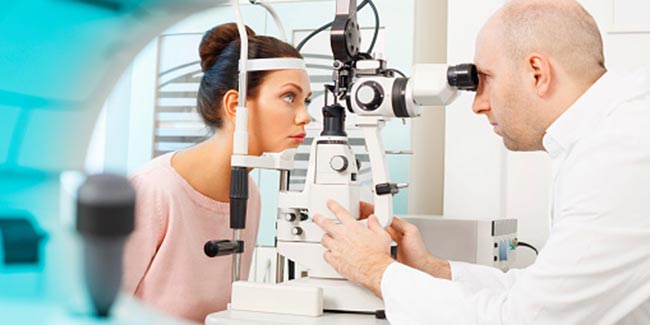
Just as our physical strength decreases, our eyesight also tends to get a bit fuzzy as we grow older. The struggle gets real when you can’t read certain things even with your reading glasses on. Although some vision problems may knock at your door before you even enter your senior years. Besides, these problems are known to go hand-in-hand with a variety of lifestyle habits and underlying medical conditions. The surprising thing here is that your vision does not just change as you age but there are some other factors that can be blamed for triggering your eye troubles. Let’s find out what are these and what can you do about them.
Table of Content:-

Image source : Getty
You stare at screens all day long
Have you ever realised how many hours of your entire day you spend staring at your computers, smartphones, laptops and other such electronic devices? Don’t know because who cares as long as you are not having trouble staring at all these devices. But eventually you will realise that all that screen time gives you “digital eye strain”, a group of problems that include tired eyes and blurred vision. We don’t blink often enough as we usually do while looking at screens which can lead to dryness and irritation. According to the studies, blink rate decreases by nearly 70 percent when using any of the aforementioned digital devices.
One of reasons why staring at such screens for long hours is not good for eyes is formation of digital letters from tiny dots that are not as sharply defined as solid characters that we see on the printed pages. So, whenever you read anything from a screen, your eyes need to work harder.
However, DES symptoms usually ease up after you powder down, but won’t be it great if you prevent them in the first place? Yes, you can do that by following the 20:20:20 rule where you will have to close your eyes or look 20 feet away for 20 seconds every 20 minutes. Doing so will break up the intense viewing that can put strain on your eyes.
If you continue to have vision problems, schedule an eye exam to rule out farsightedness and astigmatism. Already wear glasses or contact lenses? Your eye doctor can determine whether you need special prescription glasses for computer work.
You wear your contacts too long
Wearing your contacts for too long is likely to cause build-up of more dirt, mucus, proteins and minerals. You can easily see if it’s your contacts that are to be blamed by taking them out and putting on your glasses. If you see more clearly with your glasses, then your contacts are probably dirty. So, even if your contacts seem just fine, it’s imperative to clean them every day and replace them according to the schedule recommended on the box.
You scratched your cornea
Blame yourself for causing a corneal abrasion. A corneal abrasion is a scratch on the clear, protective layer that covers the front of the eye. As a result of it, you may experience blurry vision, redness or feeling like you have dust particles in your eye don’t crop up until hours after you were injured. See a doctor if you suspect you scratched your eye.
You are pregnant
If you are pregnant, you are likely to experience visual changes like blurriness and double vison. There is nothing to worry about as it only happens due to the hormonal changes, which can trigger shifts in the fluid that lies behind the cornea, causing changes in its shape and thickness. This can cause some pregnant woman to become more near- or farsighted until after delivery, when their eyes should return to normal. Mothers-to-be are also prone to dry eyes, which can lead to blurred vision and make contact lenses feel uncomfortable.
Your medications
People who take antihistamines, blood pressure drugs, or antidepressants may get dry eye, which is a slowdown in the production of tears or a change in the composition of tears that causes them to evaporate too quickly. You may also experience blurred vision, pain, redness and excess watering. However, women are more prone to dry eye than their male counterparts due to hormonal changes that occur due to pregnancy, oral contraceptives and hormone therapy.Certain medical conditions like rheumatoid arthritis and diabetes increase the risk, too.
How we keep this article up to date:
We work with experts and keep a close eye on the latest in health and wellness. Whenever there is a new research or helpful information, we update our articles with accurate and useful advice.
Current Version